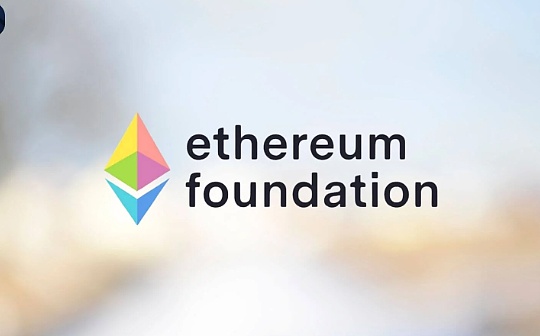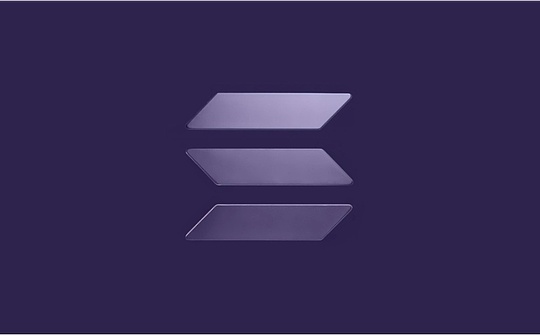
Deng Tong, Bitcoin Vision
According to the Ethereum Foundation’s announcement on October 8, the foundation will expand privacy research and development efforts, establish a “privacy research cluster”, and integrate the existing PSE team and related projects.The new cluster covers key technologies such as private payment, anonymous voting, zkID, and privacy wallet Kohaku. It also established an Institutional Privacy Working Group (IPTF) to promote the implementation of privacy applications in enterprises and institutions.The foundation emphasizes that privacy is the core feature of the Ethereum ecosystem and will run through the protocol, application and institutional levels to ensure user freedom and digital trust.
This article discusses the Ethereum Foundation’s new trends in privacy and why it is focusing on the privacy field.
1. What is the “Privacy Research Cluster”?
The “Privacy Research Cluster” team consists of 47 experts from the blockchain industry, including top researchers, engineers, and cryptographers, and is responsible for the privacy functions of the layer 1 smart contract network.These include private reads and writes for payments and interactions, portable proof of identity and asset ownership, a zkID system for selective disclosure, user experience efforts aimed at standardizing privacy tools, and Kohaku, an SDK and wallet designed to enable the usability of strong cryptography by default.
2. What has Ethereum PSE ever done?
Since 2018, Ethereum has supported privacy research through its Privacy and Scaling Explorations (PSE) team, conducting experiments such as Semaphore anonymous signaling, MACI private voting, zkEmail and zkTLS, and the Anon Aadhaar project.
The details are as follows:
-
Established more than 50 open source R&D projects to experiment with privacy tools.
-
Released core primitives such as Semaphore (anonymous signaling), MACI (private voting), zkEmail, TLSNotary (groundbreaking zkTLS), and Anon Aadhaar (private national ID), among others.
-
Created repositories that have been forked thousands of times and form the backbone of privacy R&D throughout the ecosystem.
3. Detailed overview of Ethereum privacy wallet Kohaku
On October 9, Ethereum developers announced Kohaku’s development roadmap.
Kohaku’s core goal is to create a software development kit (SDK) for building secure wallet functionality, as well as a reference wallet that demonstrates how these tools actually work.The first version will be launched as a browser extension based on the Ambire wallet, designed for advanced users seeking greater control and privacy.
Kohaku is developed in partnership with many Ethereum ecosystem teams, including Ambire, Railgun, DeFi Wonderland, Helios, and Oblivious Labs.The project is open source and developers are encouraged to contribute through its GitHub repository.
Kohaku’s main goal is to reduce wallets’ reliance on centralized services that track transactions.The project will include the following features: private sending and receiving, hiding IP addresses, independent accounts for each DApp, and P2P transaction broadcast that bypasses regular remote procedure call (RPC) servers.
It also plans to add social recovery options using tools like ZK Email or Ano n Aadhaar to make it easier to restore access without compromising privacy.ZK Email uses zero-knowledge proofs to enable anonymous verification of emails, while Anon Aadhaar allows users to prove their identity in a privacy-preserving manner.
Longer term, the team aims to bring wallet security closer to the device level, which they describe as “as close to the chip as possible.”This means creating a native Ethereum browser where users can safely interact with DApps, IPFS content, and the decentralized network without data leakage issues.
Nico, the protocol coordinator of the Ethereum Foundation, mentioned the specific functions planned to be implemented in the article “Kohaku Roadmap”:
In the first phase, a series of privacy and security-enhancing features will be developed.Here are the desired features (non-exhaustive list):
-
Run Helios lightclient in a browser extension (thanks to the Helios wasm package) and use RPC for fallback if needed and killswitch allows.This eliminates the need to trust the validity of the RPC provider.
-
A minimal execution client that runs in the browser, allowing necessary operations to be run privately.We want to be able to run eth_call to interact with an unsuspecting server to read state while ensuring that the server doesn’t know which storage is being accessed.(implemented via TEE+ORAM, and there is a long-term project trying to implement pure encryption using PIR)
-
Send privately with various privacy protocols through the wallet sending process.
-
Private reception via wallet process via various privacy protocols.
-
Private payment requests are made through the wallet with various privacy protocols.
-
Summary view of balances for all enabled privacy protocols.
-
Prevent unnecessary IP leaks and hidden traffic.
-
Transparent support for private addresses: If dApps force the use of internal RPC and support asset wallet discovery via ERC 7811, RPC can be hijacked.
-
Each dApp corresponds to an account.When connecting to a dApp, the default behavior is to prompt for a new address.
-
Wallet Connect Suite, a privacy-first protocol for point-to-point JSON-RPC connections.
-
Offers social recovery options via ZKemail, ZKpassport, Anon adhar, with standardized, maximally unintermediary implementation to ensure pass-away testing and faster attestation times.
-
Post-quantum kill switch that optionally enables post-quantum accounts with optimized Falcon/Dilithium robustness validators.
-
A universal hardware Ethereum application supporting advanced features.Provide a reference implementation of Ethereum applications that can be used immediately by different manufacturers, breaking existing vendor lock-in.
-
The ZK hardware signer (Jubjub/Bandersnatch) allows hardware to be used with existing privacy protocols.
-
Spending Policy Account policy, spending limits for different signers.
-
Optional P2P transactions, broadcast transactions directly through the p2p network without going through RPC nodes.
4. Interpretation of the Ethereum Foundation’s actions in the field of privacy
First, the Ethereum Foundation views privacy as core to Ethereum’s credibility.Blockchain is inherently transparent, but widespread adoption requires users and institutions to have the option to transact, govern, and build without exposing sensitive data.There are over 700 privacy-focused projects in the broader crypto ecosystem, but due to Ethereum’s scale, its underlying components tend to become the standard adopted by other projects.If foundations can provide trusted tools that balance privacy, neutrality, and compliance, it has the potential to define how the next wave of applications will be built.
Second, privacy issues remain politically charged.Regulators have targeted coin mixers and covert transactions, and developers are aware that features that support confidential use can also be used for illegal financial activities.That’s why the Ethereum Foundation takes the approach of open source research, working groups for institutions, and tools for ordinary users.
Third, Vitalik has urged the crypto community to “fight chat control,” warning that the data collected could be misused or expose sensitive user information through hackers.The European Union’s proposed chat control law, which would give European governments unrestricted access to all messaging traffic, could drive the adoption of Web3 alternatives as users seek privacy and control over their data.

Note: The “Chat Control” regulation is the “Preventing and Combating Child Sexual Abuse Regulation (CSA)”, which was originally proposed in 2022 by the then EU Home Affairs Commissioner Ylva Johansson.The aim is to combat the spread of child sexual abuse material (CSAM) online, including by screening messages before they are encrypted.On July 1, Denmark’s first day as the EU Council’s rotating presidency, the country said it would make the directive a “high priority”.The ordinance will be put to a vote on October 14.







